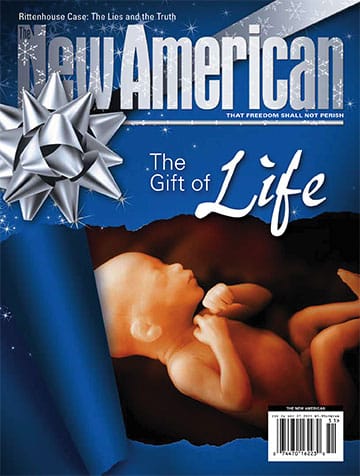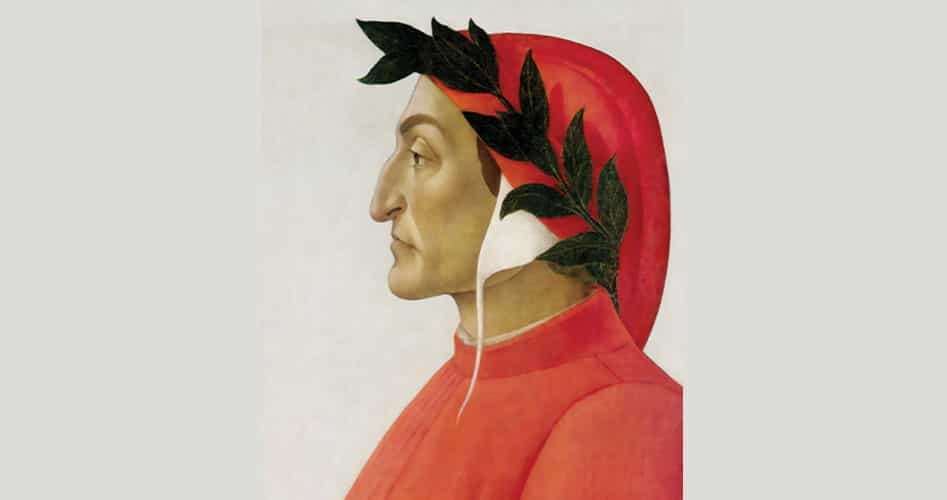The Golden Age of Christian Art and Culture From Dante to Dostoevsky
Before the calendar year of 2021 expires — and the Christian holidays that mark its conclusion pass fully into history — it is instructive and thought-provoking to consider two other momentous years ending in “21” that stand out across the long, eventful annals of Christian history and civilization.
Seven-hundred years ago, in 1321, Dante Alighieri died in exile in Ravenna, Italy. Despite being Florence’s most celebrated son and revered poet, civil faction and international strife meant that Dante would not see his native Florence for most of the last two decades of his life. Nevertheless, his Divine Comedy remains a high-water mark of Christian poetry and resulted in the first genuinely Christian epic, rivaling and in certain aspects superseding the epic masterpieces of Classical authors, including Homer’s Iliad and Odyssey, and Virgil’s Aeneid. Often cited as both the great summation of Medieval wisdom and the path-breaking precursor of Christian humanism, the Comedy serves as a bridge between the scholastic philosophy of the Middle Ages and Europe’s new (re)encounter with classical learning and the burgeoning individualism that characterized Renaissance thought, an achievement that garnered for Dante the laurel garland as the first true poet laureate of Christian civilization.
A full five centuries later, in 1821, Fyodor Dostoevsky was born in Moscow. Like Dante, he too was banished and spent a long period in exile. Dostoevsky’s banishment took place, however, during his early adulthood, before he had achieved broad and lasting fame as a novelist and essayist. In 1849, he was sentenced to death for belonging to a subversive organization, the Petrashevsky Circle, and for the crime of reading banned books and circulating them to others. At the last moment — and in dramatic fashion — Dostoevsky’s death sentence was commuted, and he was ultimately sentenced to four years of hard labor in Siberia, followed by another six years of compulsory military service, also in exile. Dostoevsky’s existential and brutal experiences in prison engendered in him a deep recommitment to the Christian faith, and upon obtaining freedom he moved to St. Petersburg in 1859, where he began in earnest his formal career as a novelist. Henceforth, his novels would plumb with increasing depth and insight the mysteries of the Christian faith, emphasizing redemption against a backdrop of secular Westernization and encroaching atheistic socialism that would eventually transform Russia into the world’s first communist state. The art, philosophy, and Christian apologetics that underpin Dostoevsky’s major novels — Crime and Punishment (1866), The Idiot (1869), Demons (1872), and The Brothers Karamazov (1881) — are among the most powerful arguments ever marshalled in support of a Christian worldview, a revival of faith that alone might check the rising tides of materialism, atheism, and socialism before they swamped under forever the grand civilization of Western Christendom. If Dante’s death in 1321 marked the passing of the greatest poet of Christian imagination, then surely the birth of Dostoevsky in 1821 presaged the rise of Christianity’s last major prophet, a monitory voice of Old Testament stature and vision, whose lamentation for the receding influence of the Gospels would fall on similarly deaf ears.
JBS Member or ShopJBS.org Customer?
Sign in with your ShopJBS.org account username and password or use that login to subscribe.

 Subscribe Now
Subscribe Now
- 24 Issues Per Year
- Digital Edition Access
- Exclusive Subscriber Content
- Audio provided for all articles
- Unlimited access to past issues
- Cancel anytime.
- Renews automatically

 Subscribe Now
Subscribe Now
- 24 Issues Per Year
- Print edition delivery (USA)
*Available Outside USA - Digital Edition Access
- Exclusive Subscriber Content
- Audio provided for all articles
- Unlimited access to past issues
- Cancel anytime.
- Renews automatically


